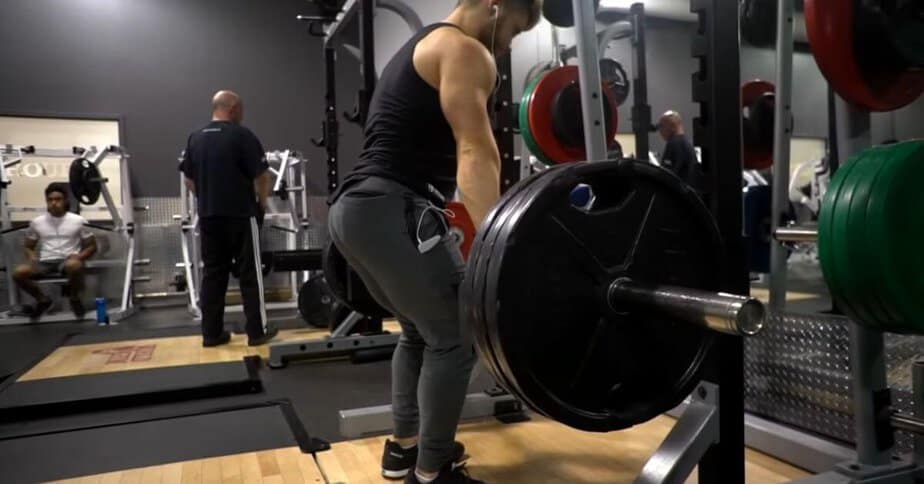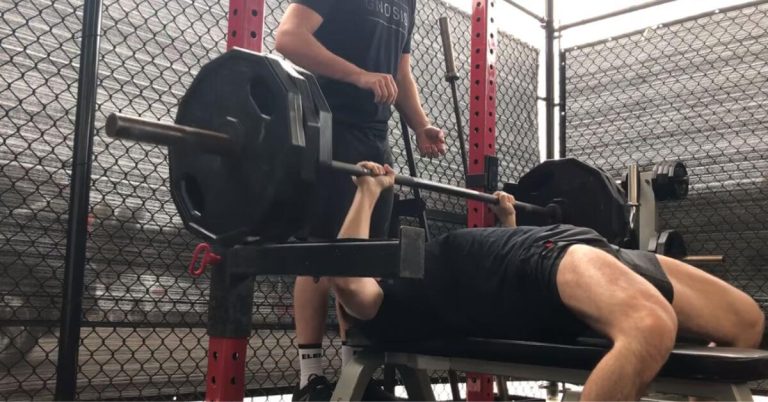Is Overtraining Real? Unveiling the Truth
Last Updated on December 12, 2023 by Justin Harris
Is Overtraining Real: Overtraining is real and can negatively affect your fitness level, performance, and overall health. It can lead to burnout, injuries, and a decline in athletic ability.
Weightlifting, cardio, and high-intensity workouts can all contribute to overtraining, especially in single-sport athletes.
Understanding Overtraining
Overtraining is a debated topic in the fitness community. What exactly is overtraining? It can be defined as the excessive exercise or training that leads to a decline in performance and overall health. The scientific definition of overtraining is the result of a chronic imbalance between training and recovery, resulting in a state of decreased performance and physical symptoms.

When it comes to overtraining, it’s important to understand that it is not simply an issue of working out too much. It is more about the lack of sufficient recovery and rest between training sessions. Overtraining can lead to physical symptoms such as increased muscle soreness, fatigue, decreased immune function, hormonal imbalances, and a higher risk of injuries.
Recognizing the signs and symptoms of overtraining is crucial in order to prevent its negative effects. It’s essential to listen to your body and give it the rest and recovery it needs. Recovery strategies include adequate sleep, proper nutrition, and regular rest days. Additionally, it’s important to vary your training intensity and incorporate deload weeks into your routine.
Read Also: What Sport Gives You the Best Female Body
Overall, understanding overtraining is important for athletes and fitness enthusiasts to maintain a balanced and healthy training regimen. By listening to your body and prioritizing recovery, you can avoid the negative consequences of overtraining and optimize your performance.
The Effects Of Overtraining
Overtraining, a condition commonly discussed in the fitness community, is the idea that too much exercise can have negative effects on the body. The effects of overtraining can be physical and can manifest in various ways. One response to overtraining is changes in blood work. Intense exercise can cause an increase in markers of inflammation, which may indicate overtraining.
Additionally, external stressors such as work, personal life, and lack of sleep can contribute to overtraining. These stressors, when combined with excessive exercise, can further strain the body and lead to overtraining. It is important to listen to your body and pay attention to any signs of overtraining. Rest and recovery are equally important components of a fitness routine as exercise itself.
Personal Experiences With Overtraining
Overtraining is a real phenomenon that many athletes and fitness enthusiasts can attest to. My personal experience with overtraining has taught me the importance of finding the right balance between pushing your limits and allowing your body to recover. I have learned that weekly recovery inventory is crucial in identifying signs of overtraining, such as increased muscle soreness, a plateau or decline in athletic performance, and the inability to train at your usual level.
Another factor that can contribute to overtraining is the impact of the menstrual cycle. Research has shown that hormonal fluctuations throughout the menstrual cycle can affect energy levels, recovery, and performance. Understanding these patterns can help women adjust their training intensity and focus on recovery during certain phases of their cycle.
Overall, it’s important to listen to your body and prioritize recovery to prevent overtraining and maximize your performance. By finding the right balance between training and recovery, you can achieve optimal results and avoid the negative consequences of overtraining.
Debunking Overtraining Myths
Overtraining is a common topic in the fitness world, and many myths surround it. Contrary to popular belief, overtraining is not good for you. It can have negative effects on both your physical and mental wellbeing. Signs of overtraining include increased muscle soreness, a decline in athletic performance, and the inability to train at your usual level.
Read Also: What’s a Good Overhead Press? Achieve Impressive Strength with Proper Technique!
To understand the impact of overtraining, consider the analogy of a car engine. Just as a car engine needs rest and maintenance to perform optimally, athletes also need to stimulate their bodies through training and allow for proper recovery. This balance is crucial for achieving long-term success. Athletes should prioritize proper training techniques and recovery methods to avoid overtraining and optimize their performance.
Overtraining Syndrome: Real Or Myth?
Overtraining Syndrome, a condition that can negatively impact your fitness levels and performance, is a real phenomenon. Symptoms can include increased muscle soreness, a decrease in athletic performance, and an inability to train at your usual level. It is important to listen to your body and avoid overexertion to prevent overtraining.
Does Overtraining Exist?
Overtraining is a common concern among athletes and fitness enthusiasts, but is it real or just a myth? Some experts argue that overtraining syndrome does exist and can have detrimental effects on physical and mental health. Common problems linked to overtraining include lowered fitness levels, decreased performance, and increased risk of injuries. Recognizing the symptoms of overtraining is critical in preventing its negative consequences.
These symptoms may include increased muscle soreness, a plateau or decline in athletic performance, and the inability to train at the usual level. Understanding the risks of overtraining is essential for individuals who engage in intense workouts, such as weightlifting, cardio, and HIIT exercises. Though overtraining may vary from person to person, it is important to find a balance between pushing oneself and allowing adequate recovery time to avoid the negative effects of overtraining.
Conclusion
Overtraining can have negative effects on your fitness level, performance, and overall well-being. It can lead to burnout and increase the risk of injuries. Symptoms such as increased muscle soreness, plateau in athletic performance, and inability to train at your usual level may indicate overtraining.
It’s important to find a balance between training and recovery to avoid overtraining syndrome. Listen to your body and make sure to give it the rest and care it needs to perform at its best.
Read Also,
- Does Creatine Make You Fart
- Why Does Weight Feel Heavier Some Days
- What Does a Stationary Bike Work
- Do Stationary Bikes Work
- Exercise Bike Short Person
- Is Stationary Bike Good for Knees
- Are Air Forces Good for Squatting
- Why Do Some Cable Machines Feel Heavier
- Which is Better Hydroxycut or Dexatrim
- Are 16 Inch Biceps Big
- Exercise Bike for Short People
- Best Indoor Cycling Bike Under $300






